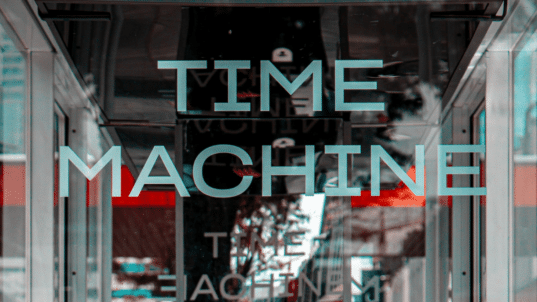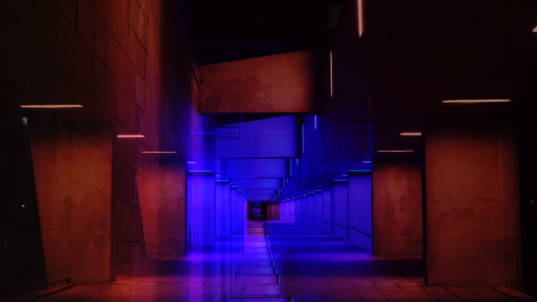
In this third and final session of our small-group conversation series about The Economy & Democracy in America, participants from around the country gathered online via Zoom to discuss, explore, and develop their visions of how our economic system might better support our democratic values rather than the other way around. What might this world look like? And how might we get there? Below is a summary of the different ideas that emerged from each small-group’s discussion in this third session.
As a further follow-up to this successful three-session discussion series, we’ll also be posting a final composite report for all three sessions that will include the questions for each session, a combined summary of the main ideas participants discussed throughout the series, and some additional key questions for further exploration.
Discussion Summary
What’s something that’s working to make our economic system more supportive of the health of our democracy rather than weakening it?
Economic regulations and interventions that work for the greater good of all, for example–
- The Federal Reserve raising interest rates to bring down inflation
- Consumer protection regulations, like requiring financial institutions to provide consumer information to help people make informed decisions
- Stimulus checks during the pandemic helped support citizens and our economy overall
Immigration policies and practices that are generally more open and welcoming compared to other nations
- This welcoming posture helps boost our economy overall and strengthen our democracy by providing more voices, more diverse perspectives, more creativity and innovation
- Despite rising anti-immigrant rhetoric in the U.S., many people around the world still see America as a land of freedom and opportunity, a “Promised Land”
Policies that support a more inclusive society, for example—
- Providing more access to employment and educational opportunities for people with disabilities so they can more fully participate in our economy and society
- Improvement in acceptance of and support for persons with mental health conditions
- Government policies and practices that encourage and enable more diverse citizen engagement and collaboration in planning and implementing public projects (e.g. highway construction) and that consider reparations for past harms
Policies that encourage entrepreneurial endeavors, especially for small and start-up businesses, and that free up businesses to develop and market new goods and services
- For example, government programs that support certain, qualifying small businesses, like minority or veteran-owned businesses, by providing certain advantages in bidding on government contracts
Policies that support labor unions, which helps to democratize the workplace and democratize the economy more generally
Our international legacy of a long-term, functioning democracy with free markets that provide a stable context for private investment has, historically, provided support for implementing democratic reforms in other countries
Nothing. Our current economic policies are not working to support a healthy democracy, especially for younger generations
- Our economic policies have significantly reduced upward economic mobility by making it much harder for younger generations to get an education, health care, housing, etc.
- America now lags behind many other developed countries in upward economic mobility
- “As a younger person and a woman of color, I can’t think of anything positive” about our current economic policies and democracy
Hitting rock bottom and democratic resurgence
- Increasingly willingness to protest, especially among younger generations, may be a good sign of democratic resilience–and a positive consequence of hitting “rock bottom” under our current economic policies
- Younger generations may be, necessarily, more willing to protest, to resist
Improvements in access to the ballot and voter participation—even as there are many backsliding measures to significantly limit access to the ballot
- Elimination of poll taxes, historically at least
- More recently, expansion of mail-in voting, partly in response to the pandemic
- Some improved ballot access for people with disabilities
The growth of our communications infrastructure (especially the internet) has, in some ways, strengthened our democracy:
- Improved access to information, which has helped our economy and democracy
- More people are learning about what is going on, which helps informed decision-making and can boost democratic participation
- People are better able to to organize, to connect with and support each other, and to become a political force
- On the negative side, more people are now consuming more disinformation or disengaging from democracy because of the rising incivility that is accentuated and accelerated by social media and news media
Student Financial Aid was (at least when it actually met financial need) supportive of democracy by helping at least some students in that time get an education who otherwise might have been excluded
- An alternative view is that financial aid feels like the opposite, namely a one-way door to lifetime indebtedness, since it relies mostly on higher interest loans and we have allowed higher education costs to rise well above inflation
Improved access to health insurance, health care, and health information
- The Affordable Care Act has expanded access for many
- Better, and more accessible, health information has highlighted significant racial and economic disparities in health care access and health outcomes, and in some cases has improved awareness of—and treatments for—mental health conditions
- We’ve begun improving our approach to addiction and treatment, viewing it less as an individual moral failing and more as a disease and public health concern
Social Security: the cornerstone of our social safety net
- It established notion that you don’t have to have a job to contribute to our economy since social security not only aids individuals; social security payments also support many communities
Picture a future world where our economic system better supports our democracy rather than the other way around. What might this world look like, what is different, and how might we get there?
Shift away from worshiping economic efficiency toward worshiping what is good for people and the planet
- Efficiency constantly pushes for doing more with less, which ultimately degenerates to “doing something for nothing,” which ends up hurting people
- Change to a paradigm that focuses on contributing to the overall public good
- Build in more generosity: doing good costs money and we shouldn’t try to hide that
- Stop the constant push to minimize taxes, since we need to use tax revenues to invest in the public good and we need to clearly show the public benefits that come from those investments
- Shift to a maximalist and communalist mindset–instead of our current minimalist and individualist mindset
- Create a new bottom line–what is the best for the health of the people and the health of the planet: focus on “Gross National Happiness” rather than Gross National Product
- Focus our attention not on how rich people can get, but how poor we let people get
- Raise the bottom so that people don’t fall below a certain level where they can meet all their basic needs
- The industrial revolution led us to sacrifice people to jobs, for the sake of economic growth, and our religion changed to match this belief, where economic productivity was a sign of one’s faith or moral status and people were treated as means to an end (economic growth)
- We need a similar religious reversal where the economy is the means toward human wellbeing as the end
Democratize the workplace by changing the labor union paradigm to a universal one, a union of unions, that is not limited to a single sector–a general union where every worker is protected regardless of the economic sector
- A general workers’ union that would protect every worker’s rights and
- Large enough, by sheer numbers, to counterbalance the power of capital and large corporations (“quantity has a quality all its own”)
Focus on the health of the country by reining in our military adventurism
- Shift our economic focus away from militarism and over-investment in defense spending to industries that are more conducive to a healthy democracy
- Join the International Criminal Court (ICC), which will restrain our overuse of military intervention, save money, and allow us to invest more in things that benefit the US population, shoring up our democracy
An industrial policy that prioritizes our overall “national wellness” rather than promoting or protecting singular industries or economic sectors
Create an economic policy of “leave no one behind,” for example—
- Restructure education to give people equal opportunities for economic advancement by providing, for example tax credits for those who can’t afford college, or make college tuition free; also include trade schools and apprenticeships
- Establish free access to publicly-funded healthcare
Shift toward long-term thinking and planning
- When we make democratic choices, like voting, we should think of the next 20 years, or the next four or five generations, and ask what will make a better world for those generations
- Often when we vote, we might think of next 2-4 years, but if you have kids, you think of the next 20 because you’re thinking of the world they will inherit
- Use a wellness model to avoid solutions that only address problems when they’ve reached a critical level
- For example, you can’t impoverish communities and families, and then try to make it up with tuition-free college
- Students and families need more stable environments and access to quality resources, and investments in public health over their lifetimes
- This doesn’t mean we can’t address discrete problems, but we need to focus on the root causes and invest in the long-term well-being of society
Shift from a mindset of personal enrichment, consumerism, and zero-sum thinking toward a positive-sum mentality where we all have more, and are working to make a better world for all
- We are stuck on our worship of rugged individualism, but we can’t square that with working for the common good
- Currently many feel, “if you are able to breath fresh air, then my stock value has suffered”; this zero-sum mentality leads to gaming the system
- We need models of cooperation, to get beyond winning/losing, to see how we are all in this together
- Promote social interaction to have more social solidarity, since “social trust is a nation’s immune system”
- Work for a healthy ecosystem for all living beings, rather than just what makes you rich
- We need people motivated by a charitable spirit of looking out for the greater good, not their personal enrichment or power
We need campaign finance reform to get the money out of our politics
- A lot of special interest loopholes and the complexity of our taxes are the result of politicians helping the people from whom they have to raise money to get elected.
- A truly progressive tax system that gets the wealthy to pay the taxes they owe would first require campaign finance reform
- Campaign finance reform would be a good thing in and of itself, and it definitely affects the taxes we pay
- Special interests get special favors without consideration of what is good for the nation as a whole
Change our tax system to meet the needs of the greater good of the whole population
- We currently rely heavily on private largesse, charitable giving, to help people because our public system doesn’t take care of the public good
- It’s often portrayed as a good sign that we, as a country, have a lot of charitable giving, but it’s really a bad sign–that we don’t use our taxes to sufficiently pay for the public good
- We need a more robust and progressive tax system, with higher taxes on unearned income than earned income (right now it’s the opposite)
- We could then use public funding to cover more comprehensively the basic needs for all: food, housing, education, healthcare, retirement, etc.
- We need to remember what we have shown that we can already do: for example, by dialing back our tax system to the 1950s when the rich were paying top marginal tax rates of 90+% and few at the time thought it was necessarily unfair
- The economy grew significantly even with those high tax rates; and
- There were more good jobs available and more people were ready to take those jobs and experience upward mobility
- An important reminder: if you were doing well in the 1950s, you were likely middle class and white; but this economic growth was based on exploiting Americans of color and people in other countries; the white middle class of those years “profited from profound injustice”
A world where small businesses are thriving–employing more people at better wages and providing more variety of goods and services–in part because our government has figured out how to regulate them better, streamlining permitting, and not treating them the same as larger businesses, etc.
- Similar to what has largely already been done with nonprofits–create separate, streamlined sets of rules and procedures for smaller organizations
A world where we can deliberate effectively and decide important big-picture issues, like the role of government and what we want to pay for with our tax dollars.
- We could resolve issues rather than avoiding them or getting stuck with half measures that combine the worst elements or consequences of both sides
- Without a general agreement or consensus on funding, it’s like we’re running a three-legged race; we don’t get anywhere very well
- For example, failure to work out the mix of publicly-funded and privately-funded healthcare has left us with elements of both that together provide worse care at higher costs than any other system
A world where everyone is able to participate in decision-making and a shared commitment to the public good
- Now, the loudest voices (those with money/power) get what they want for their own self-interest, not for the public good
- Use education to change thinking, to help make America more socially-minded, and overcome the notion that greater wealth somehow implies higher moral standing
A world in which the distribution of wealth and income is significantly shifted so that it’s no longer predicted by–or predicated on—our race, religion, gender; a world that recognizes and rewards skill, educational attainment, and work that benefits society
- For example, a socially beneficial and personally meaningful career in teaching or social work should not force a person to be on public support just to afford rent or food
- Many other young professionals are also unable to make ends meet when you factor in their student debt: they can’t buy homes or otherwise build wealth
- We would re-value certain sectors (teachers, social workers, health care workers, child care workers, etc.) to make sure they pay at least a living wage
- It’s about what we prioritize, what we value, and following through when we vote. For example, if we value education, then we need to pay teachers more
A world with an economy shifted from reliance on constant economic growth and toward balance, toward–
- A more even distribution of wealth and income
- Having a social safety net that works and recognizes the basic dignity and value of every human being and the right to live by providing for their basic needs
- A sustainable economy that helps us live in balance with each other and with nature, working within the limits and needs of our planet and all the other species on it
A culture of respect for a kinder, more respectful, more civil society where even when we profoundly disagree, we respect each other not just in how we behave but also how we think about each other
- For example, in the US, we would stop demeaning those who need help, like no longer calling people lazy who need expanded unemployment benefits
- Imagine living in a world where we did not have these negative impressions of our fellow citizens just because they are in need
- Create a culture of civility, where we could discuss and debate without assuming the worst of persons we disagree with
- If we don’t create a culture of respect, we are doomed to make progress at a snail’s pace
- This incivility can be corrected. It is not inherent in people
Possible branding or catch-phrases for future visions, updates to the American Dream
- “Make America Civil Again”
- “Doughnut Economics” https://doughnuteconomics.org/about-doughnut-economics
- “Think Long Term”
- “Audacity of Hope”
- “Everybody Wins”
- “An Impossible Burger in Every Skillet”



